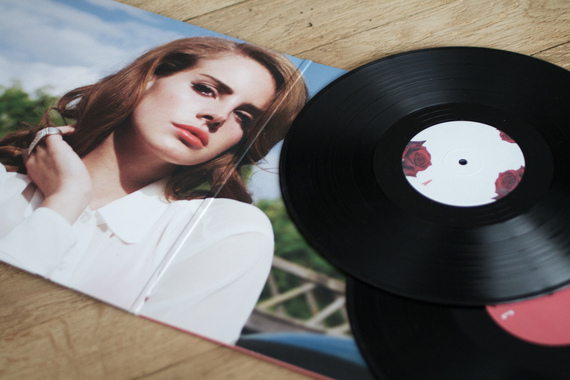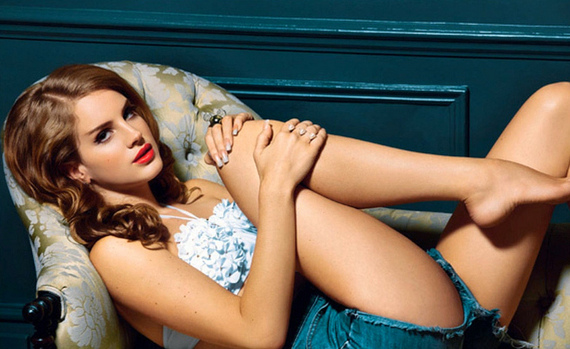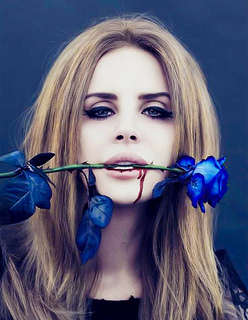This article originally appeared on Profoundly Human
An analysis of how Lizzy Grant became one of the biggest stars of our time by creating an illusion of nostalgia.
Just about to embark on her Endless Summer tour, the highly criticized and equally celebrated Lana Del Rey has been a person of interest and intrigue for fans and skeptics alike. Whether you like her music or not, she's made a name for herself and has an astronomical following to prove it. But what makes her music so addicting to the thousands of diehard LDR fans? Well I can tell you it isn't just the sound. More so, it's the particular emotion it evokes, and to understand this we have to understand the person behind it.
Before the dramatic and daring Lana Del Rey emerged, there was Lizzy Grant, who started performing at age 21 in New York bars and open mic nights just like every other aspiring singer in the city. Grant's voice, albeit familiar, was quiet and lacking in confidence then. In one of her early shows, she stands on a dimly lit stage sporting a T-shirt, jeans, and blonde hair pulled back into a ponytail - a casual look that counters everything we associate with the glamor queen we know now.
We don't hear much about Lizzy Grant because her big break never came, in fact, just before the first Lana Del Rey songs appeared on YouTube, Lizzy Grant's old social media profiles had apparently disappeared from the Internet. Unbeknownst to the world, a transformation was in the works.
When Elizabeth Grant re-entered the scene, she had changed more than just her name. Her hair was a dark shiny gold, done up with voluminous waves. She wore elegant makeup, had pouty lips and a confident disposition to match a heavy, sultry voice. It was an entire persona created from the best of the past; she was like a relic from old 1940s Hollywood, unmistakably glamorous, and it worked in her favor. Her identity as Lana Del Rey is a caricature of the figure she felt matched her songs, and I don't doubt that it had been in Lizzy Grant all along. Perhaps she just needed a little help executing it. Lana Del Rey is a self-described "gangster Nancy Sinatra" and says her inspirations include "all of the greats."
But what I find most fascinating about the star are the ideas she draws upon for lyrical inspiration. She has sung about beat poetry, Lou Reed, and jazz collections, and her videos have the endearing appearance of home production juxtaposed with cinematically romantic themes and luxury. It's all about evoking the emotions associated with nostalgia, as if her young life has already been filled to the brim with experience and heartache, and we are reading about it or watching it like a film. However, the majority of Del Rey's fan base is under thirty, heck, most have hardly made it through their early twenties, so what do they know about the Beatnik Generation and Old Hollywood, one might ask? Probably nothing, but it doesn't matter. Almost every theme Lana Del Rey sings about is timeless and that's why an 18-year-old at her concert can feel like the lyrics are written about her life even if she hasn't lived through any of it.
It's like watching a 1940's romance-drama and being completely engrossed to the point of forgetting that you are the viewer, not the lead damsel herself. Lana Del Rey is a storyteller who is all about juxtapositions; naïve yet experienced, coy yet confident, beautiful but alone. Everyone can relate to this clash of emotion, and if they can't, they love to watch - thus the basis of her success. This analysis is not meant to be a criticism, rather, a compliment. Trends repeat themselves all the time and it takes skill to present something from the past in such a way that still captivates an audience.
Nevertheless, she has faced her fair share of judgment across the board. NY Daily News made it known they did not find Del Rey's trend of recycling appealing, saying of her songs, "they induce only the headache that comes with recognition: "This again?" And singer Lorde stated in an interview that she finds the themes of Del Rey's songs unhealthy, many of which feature an undercurrent of codependency: "This sort of shirt-tugging, desperate, don't leave me stuff. That's not a good thing for young girls to hear."
Be that as it may, many of the fans supporting Lana Del Rey are young girls, so we can only hope they aren't taking too much of what she says about heartbreak to heart.
The transformation from Lizzy Grant to Lana Del Rey was a quiet and swift one, but no one could have expected the star that emerged to charm as many as she has. No one except Noah Levy, senior news editor at In Touch Weekly magazine, that is. In 2012 he told the Guardian, "she's going to one day be on the cover of Rolling Stone," and summer of 2014, that she was.
It really isn't surprising when you thinking about it, being that she explicitly embodies everything charming, alluring and successful from past generations. Lana Del Rey is a new star created from old sounds and even older ideas - and she has made a fortune doing it, because every time history repeats itself the price goes up.


